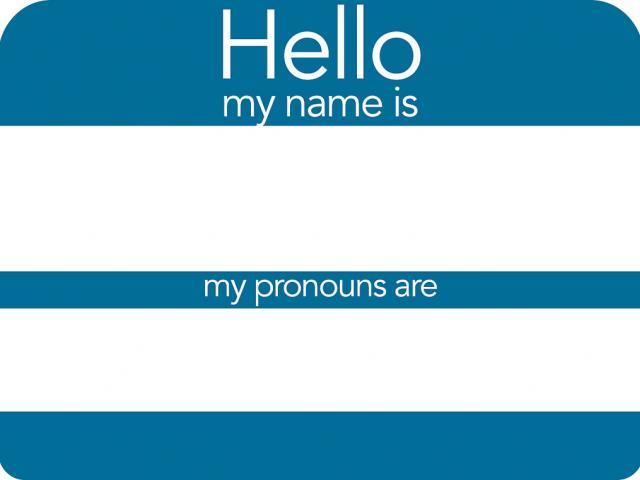Learn and build your capacity. Spectrum Center offers opportunities and resources for U-M community members seeking to deepen their knowledge, grow their skills, and enhance experiences and belonging on campus.
Here, we've gathered up information you may be seeking about:
- Workshops
- Consultation
- Online learning
- Pronouns basics
- Resources for faculty, staff, researchers, and instructors
EDUCATION & RESOURCES
Resources
For faculty, staff, and researchers
![]()
What we offer
We've created this web course to be accessible, relevant, and immediately useful—a foundational resource for your learning journey about LGBTQIA2S+ identities.
"Pronouns 101" and "Towards Solidarity"—Workshops for students, faculty, and staff on best practices, language, and skills to interrupt homophobia and transphobia.
Our team provides consultation services for your department, classroom, or group to support capacity building related to LGBTQ+ inclusion and equity.
![]()
Our educational philosophy
Our team recognizes the significant role of education in LGBTQIA2S+ equity. We strive to accomplish the following goals through our work:
- Create cutting-edge curriculum: Our approach to curriculum development and facilitator training is interdisciplinary, intersectional, and adaptive. We dedicate ourselves to remaining up-to-date on the latest LGBTQIA2S+ research, theories, and best practices, as we recognize that knowledge evolves quickly.
- Develop actionable allyship: We firmly believe that everyone has a part in supporting LGBTQIA2S+ equity work. We guide workshop participants to begin or continue on a lifelong journey of learning, unlearning, and enacting change.
- Build capacity for structural change: Through our workshops, webcourses, and consultation services, we share core strategies with our U-M community for building inclusive teams, departments, and classrooms. We aim to equip folks with foundational and innovative skills to complement or expand upon their DEI initiatives.
- Support LGBTQIA2S+ thriving: Our ultimate goal is to contribute to a culture in which queer and trans individuals can live authentically, achieve their dreams, and experience community. We center the lived experience of LGBTQIA2S+ individuals by acknowledging the diversity of race, ethnicity, dis/ability, socioeconomic status, religion, size, citizenship, age, gender, and sexual identity present in our community.
Why not SafeZone?
Safe Zone training is usually a two to three hour training on LGBTQIA2S+ inclusion basics with a sort of “credentialing” provided afterwards in the form of a sticker or sign indicating that an individual has completed the training. Spectrum Center has made the intentional choice to no longer offer Safe Zone workshops, in alignment with better practices, trends in LGBTQIA2S+ higher education, and our capacity building model of community based education.
Some specific reasons include:
- Two to three hours is an insufficient amount of time to cover the content required of an introductory workshop.
- We've found that credentialing models, like Safe Zone workshops, have stymied ongoing growth and development.
- Safe Zone workshops are often merely performative.
- We hope to encourage an attitude of lifelong learning. This is particularly important due to the fact that best, better, and promising practices for serving and supporting LGBTQIA2S+ communities change rapidly.
- Safe Zone workshops are designed to credential “allies” and, while allies are important to our community, “ally” is not an identity term. In alignment with this shift, we encourage folks to center action-focused allyship, rather than relying on SafeZone stickers to communicate they are an accepting or safe person.
- Safety means a variety of different things to different people. We cannot guarantee that a person, department, or group is safe, and we cannot credential them as “safe” following a brief two to three hour workshop that too often only covers basic concepts and vocabulary.





